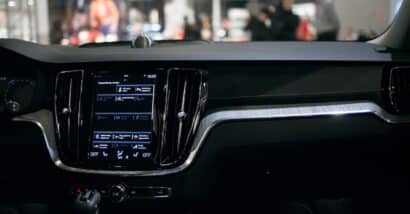 On Monday, Volvo Cars of North America LLC and Volvo Car USA LLC were hit with a class action lawsuit alleging some of its crossover SUVs were not compatible with Android Auto despite Volvo’s representations that they were.
On Monday, Volvo Cars of North America LLC and Volvo Car USA LLC were hit with a class action lawsuit alleging some of its crossover SUVs were not compatible with Android Auto despite Volvo’s representations that they were.
Plaintiff R.M. filed the Volvo class action lawsuit on behalf of himself and a proposed Class of purchasers and lessees of 2014, 2016 and 2017 Volvo XC90 vehicles. (Volvo did not sell a 2015 XC90.)
According to the Volvo class action lawsuit, Volvo first introduced the XC90 luxury crossover SUV in September 2014.
“In developing and marketing the Volvo XC90, Volvo made substantial efforts to distinguish the Volvo XC90 from its competitors’ automobiles by marketing it as more technologically advanced and unique than the competition,” the Volvo class action lawsuit says.
In its public relations and marketing campaign for the XC90, Volvo reportedly touted an in-car technology user interface called Sensus, which it claimed would be compatible with Google’s Android Auto application. Android Auto compatibility would allow drivers of Volvo XC90 vehicles to integrate some features of their Android smartphones with the Sensus system.
However, R.M. says that the Sensus system in Volvo XC90 vehicles was not compatible with Android Auto, and cannot be made to be compatible with the Google smartphone app despite its express representations. He points to a press release issued in 2015 indicating that the Volvo XC90 vehicles were integrated with Android Auto. Later press releases noted that the vehicles were not yet compatible with Android Auto but would be in the future.
“Volvo designed and intended that its press releases and other public relations and marketing efforts would spread among automobile reviewers, Volvo dealers, and others the ‘fact’ that the Sensus system on the Volvo XC90 was or would be compatible with Android Auto,” R.M. says in the Volvo class action lawsuit.
R.M. asserts that it was Volvo’s intention to spread the word to prospective car buyers that the Sensus system on its XC90 vehicles was compatible or would be compatible with Android Auto. He says Volvo’s efforts were successful and points to several articles which touted the XC90’s compatibility with Android Auto.
According to the Volvo class action lawsuit, Volvo now admits on its website that the Sensus system on its 2016 XC90 will never be compatible with Android Auto because they only have one USB port and it is not possible to retrofit the system to include two USB ports. R.M. notes that the 2014 Volvo XC90s and the 2016 XC90s that were manufactured before April 2016 also have only one USB port and will therefore never be compatible with Android Auto despite Volvo’s representations.
The Volvo class action lawsuit asserts claims for breach of express warranty and violations of New Jersey’s Consumer Fraud Act and the Massachusetts Consumer Protection Act. R.M. seeks actual damages, attorneys’ fees, expenses and costs, pre- and post-judgment interest and other relief the court deems proper.
R.M. is represented by Barbara Hart, David Harrison, and Sung-Min Lee of Lowey Dannenberg PC, and by Edward F. Haber and Patrick J. Vallely of Shapiro Haber & Urmy LLP.
The Volvo Android Auto Class Action Lawsuit is R.M. v. Volvo Cars of North America LLC, et al., Case No. 2:18-cv-03760-CCC-JBC, in the U.S. District Court for the District of New Jersey.
ATTORNEY ADVERTISING Top Class Actions is a Proud Member of the American Bar Association LEGAL INFORMATION IS NOT LEGAL ADVICE
Top Class Actions Legal Statement
©2008 – 2025 Top Class Actions® LLC Various Trademarks held by their respective owners This website is not intended for viewing or usage by European Union citizens.














